
La doctora Wendy Mogel es psicóloga clínica, conferencista internacional y autora best seller de The Blessing of a Skinned Knee y The Blessing of a B Minus. Es miembro del consejo asesor de la revista Parents, y su misión es promover la independencia, resiliencia y responsabilidad en los niños al enseñarle a los adultos a comunicarse con ellos de manera asertiva. Actualmente vive en Los Ángeles.
www.wendymogel.com
 WendyMogelPhD
WendyMogelPhD
 drwendymogel
drwendymogel
LA VOZ DE LOS PADRES
Qué decir, cómo decirlo y cuándo callar
Título original: VOICE LESSONS FOR PARENTS. What to Say, How to Say It, and When to Listen
© 2018, Wendy Mogel
Traducción: Aridela Trejo
Diseño de portada: Jaya Miceli
Fotografía de la autora: © Amy Dickerson
D.R. © 2019, Editorial Océano de México, S.A. de C.V.
Homero 1500 - 402, Col. Polanco
Miguel Hidalgo, 11560, Ciudad de México
www.oceano.mx
Primera edición en libro electrónico: febrero, 2019
eISBN: 978-607-527-871-1
Ninguna parte de esta publicación, incluido el diseño de la cubierta, puede ser reproducida, almacenada o trasmitida en manera alguna ni por ningún medio, ya sea electrónico, químico, mecánico, óptico, de grabación o de fotocopia, sin permiso previo y por escrito del editor.
Libro convertido a ePub por Capture, S. A. de C. V.
Notas
NOTA DE LA AUTORA
Francine Russo, “Is There Something Unique about the Transgender Brain?”, Scientific American, 1 de enero de 2016, https://www.scientificamerican.com/article/is-there-something-unique-about-the-transgender-brain/ .
CAPÍTULO 1. EL PÚBLICO TE ESCUCHA
Catherine Saint-Georges et al., “Motherese in Interaction: At the Cross-Road of Emotion and Cognition? (A Systematic Review)”, PLOS One, vol. 8, núm. 10, 2013, http://www.ncbi.nlm.nih.gov/pmc/articles/PMC3800080/ .
Joanne Loewy et al., “The Effects of Music Therapy on Vital Signs, Feeding, and Sleep in Premature Infants”, Pediatrics, vol. 131, núm. 5, mayo de 2013, http://pediatrics.aappublications.org/content/early/2013/04/10/peds.2012-1367.abstract .
Douglas Quenqua, “Mothers’ Sounds Are Building Block for Babies’ Brains”, The New York Times, 23 de febrero de 2014, https://well.blogs.nytimes.com/2015/02/23/mothers-sounds-are-building-block-for-babies-brains .
“Frequently Asked Questions about Brain Development”, Zero to Three, https://www.zerotothree.org/resources/series/frequently-asked-questions-about-brain-development .
Margaret Talbot, “The Talking Cure”, The New Yorker, 12 de enero de 2015, http://www.newyorker.com/magazine/2015/01/12/talking-cure .
Nadya Pancsofar y Lynne Vernon-Feagans, “Fathers’ Early Contributions to Children’s Language Development in Families from Low-Income Rural Communities”, Early Childhood Research Quarterly, vol. 25, núm. 4, octubre de 2010: http://www.ncbi.nlm.nih.gov/pmc/articles/PMC2967789/ .
Conversación personal con Beth Weisman, educadora de preescolar radicada en Los Ángeles.
Renee Bevis, RN, “Why Kids Need to Learn to Eat (not just suck) and Hungry Babies Must Be Fed (even if their parents are afraid they’ll get fat)”, Child Care Health Solutions, enero de 2014.
Jenny Radesky et al., “Patterns of Mobile Device Use by Caregivers and Children During Meals in Fast Food Restaurants”, Pediatrics, vol. 113, núm. 4, abril de 2014, http://pediatrics.aappublications.org/content/pediatrics/133/4/e843.full.pdf .
Leah Todd, “Parents Who Use Cell Phones on Playgrounds Feel Guilty, Study Finds”, Phys.org, 21 de mayo de 2015, href="http://phys.org/news/2015-05-parents-cell phones-playgrounds-guilty.html .
Susan Dominus, “Motherhood, Screened Off”, New York Times Magazine, 24 de septiembre de 2015, http://www.nytimes.com/2015/09/24/magazine/motherhood-screened-off.html .
Susan Weinsehenk, “Why We’re All Addicted to Texts, Twitter and Google”, Psychology Today, 11 de septiembre de 2012, https://www.psychologytoday.com/blog/brain-wise/201209/why-were-all-addicted-texts-twitter-and-google .
Bill Davidow, “Exploiting the Neuroscience of Internet Addiction”, Atlantic, 18 de julio de 2012, http://www.theatlantic.com/health/archive/2012/07/exploiting-the-neuroscience-of-internet-addiction/259820/sh .
Linda Stone, entrevista de James Fallows, “The Art of Staying Focused in a Distracting World”, Atlantic, junio de 2013, http://www.theatlantic.com/magazine/archive/2013/06/the-art-of-paying-attention/309312/ .
Ari Brown, Donald L. Shifrin y David L. Hill, “Beyond ‘Turn It Off ’: How to Advise Families on Media Use”, AAP News, 28 de septiembre de 2015, www.aappublications.org/content/36/10/54.full .
American Academy of Pediatrics, “American Academy of Pediatrics Announces New Recommendations for Children’s Media Use”, comunicado de prensa, 21 de octubre de 2016.
Laura Clark, “Gadgets Blamed for 70 Per Cent Leap in Child Speech Problems in Just Six Years”, Daily Mail, 27 de diciembre de 2012.
Nick Bilton, “The Child, the Tablet and the Developing Mind”, The New York Times, 31 de marzo de 2013, http://bits.blogs.nytimes.com/2013/03/31/disruptions-what-does-a-tablet-do-to-the-childs-mind/ .
CAPÍTULO 2. EL GRAN ESPACIO DE CATEDRAL DE LA INFANCIA
Virginia Woolf, Momentos de vida, Madrid, Penguin Random House, 2014.
Bruno Bettelheim, The Uses of Enchantment: The Meaning and Importance of Fairy Tales, Nueva York, Vintage, 1989.
CAPÍTULO 3. LOS MÁS GRANDES, MÁS FUERTES Y MÁS RÁPIDOS
David Lancy, The Anthropology of Childhood: Cherubs, Chattel, Changlings, Nueva York, Cambridge University Press, 2008.
David Walsh, Smart Parenting, Smarter Kids, Nueva York, Simon & Schuster, 2011.
Virginia Bonomo, “Gender Matters in Elementary Education: Research-Based Strategies to Meet the Distinctive Learning Needs of Boys and Girls”, Educational Horizons, vol. 88, núm. 4, verano de 2010, pp. 257-264.
Leonard Sax, “Sex Differences in Hearing: Implications for Best Practice in the Classroom”, Advances in Gender and Education, vol. 2, 2010, pp. 13-21. Texto completo en línea en: www.mcread.org .
Ibid.
La información de la tabla se reunió y adaptó a partir de D. Walsh, Smart Parenting, Smarter Kids; L. Sax, “Sex Differences in Hearing”; V. Bonomo, “Gender Matters in Elementary Education”; y Michael Gurian, Boys and Girls Learn Differently!: A Guide for Teachers and Parents, San Francisco, Jossey-Bass, 2001.
M. Gurian, Boys and Girls Learn Differently!
Ibid.
Peter Gray, “The Decline of Play and the Rise of Psychopathology in Children and Adults”, American Journal of Play, vol. 3, núm. 4, primavera de 2011, http://www.journalofplay.org/issues/3/4/article/decline-play-and-rise-psychopathology-children-and-adolescents .
En el capítulo 10, “Los asesores”, encontrarás más información sobre cómo gestionar situaciones en las que es evidente la incompetencia de un maestro.
“10 Creepy Vintage Ads of Doctors Endorsing Cigarettes”, Ghost Diaries, julio de 2015, http://theghostdiaries.com/10-creepy-vintage-ads-of-doctors-endorsing-cigarettes/ .
American Psychiatric Association,
Página siguiente

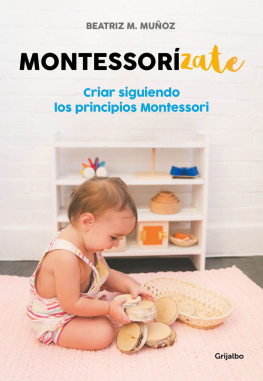
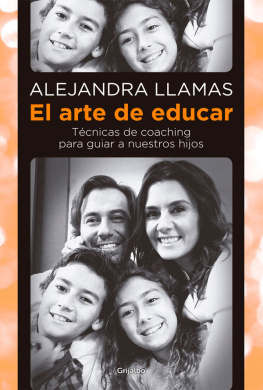

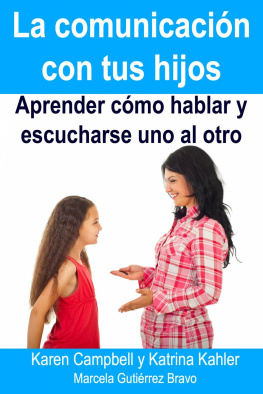
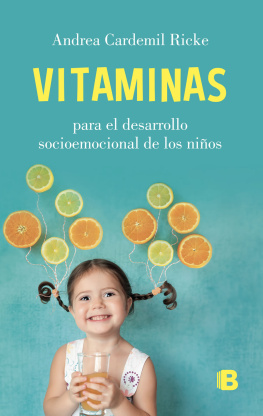
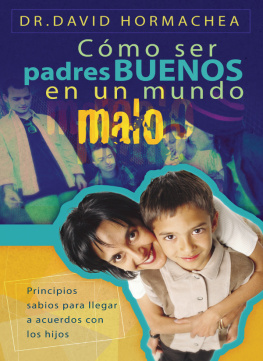

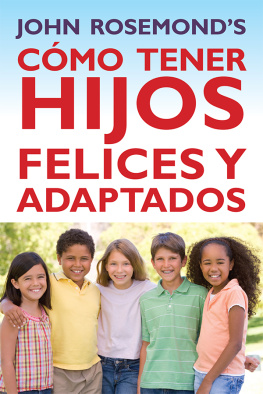

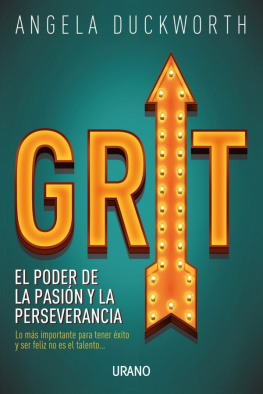
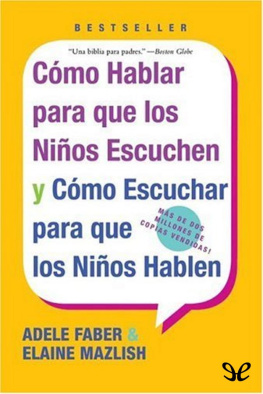

 WendyMogelPhD
WendyMogelPhD drwendymogel
drwendymogel